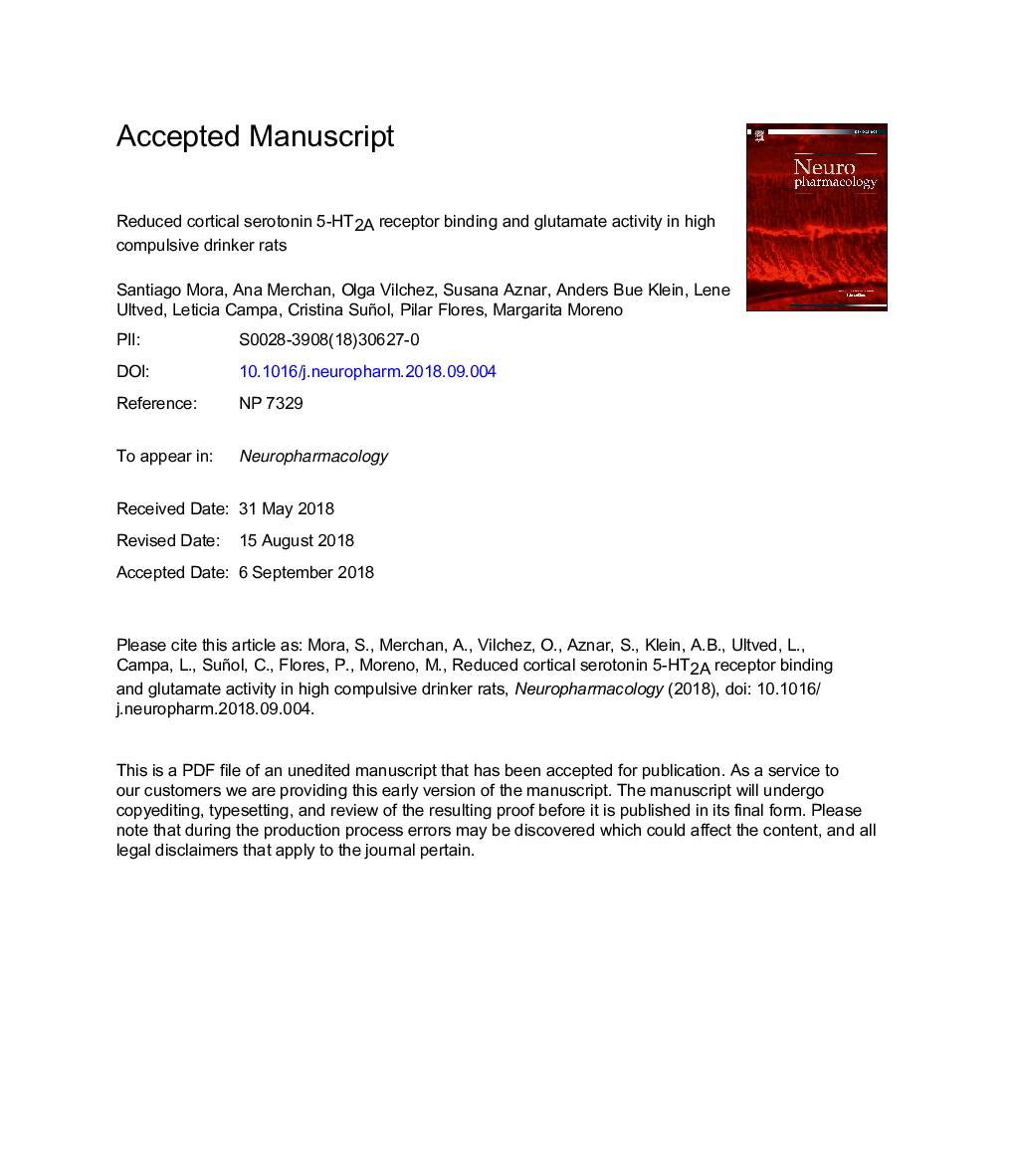| کد مقاله | کد نشریه | سال انتشار | مقاله انگلیسی | نسخه تمام متن |
|---|---|---|---|---|
| 10158235 | 1666518 | 2018 | 35 صفحه PDF | دانلود رایگان |
عنوان انگلیسی مقاله ISI
Reduced cortical serotonin 5-HT2A receptor binding and glutamate activity in high compulsive drinker rats
دانلود مقاله + سفارش ترجمه
دانلود مقاله ISI انگلیسی
رایگان برای ایرانیان
کلمات کلیدی
موضوعات مرتبط
علوم زیستی و بیوفناوری
علم عصب شناسی
علوم اعصاب رفتاری
پیش نمایش صفحه اول مقاله

چکیده انگلیسی
Serotonin2A receptors and glutamate signaling have been implicated in the pathophysiology and treatment of compulsive spectrum disorders. Schedule-Induced Polydipsia (SIP), characterized by excessive drinking under intermittent food reinforcement schedules, is a valid model for studying the compulsive phenotype in rats. We explored the expression, function, and neurochemistry of 5-HT2A receptors in the frontal cortex (FC) of rats with individual differences to compulsivity. Rats were selected for high (HD) versus low (LD) drinking on SIP. First, we measured 5-HT2A, 5-HT1A, and mGlu2/3 receptors and serotonin transporter binding in different brain regions. Second, we assessed the effect of microinfusion into the medial prefrontal cortex (mPFC) of the 5-HT2A/C receptor agonist DOI, the mGlu2/3 agonist LY379268, and the combination of DOI with the 5-HT2A receptor antagonist M100907 and the 5-HT2C receptor antagonist SB242084. Finally, we measured the serotonin and glutamate efflux in mPFC in basal condition and after DOI local application. The compulsive HD rats showed a specific reduction of 5-HT2A receptor binding in FC compared to LD rats. The highest dose of DOI reduced compulsive drinking in HD rats on SIP, whereas LY379268 did not induce any significant effect. The 5-HT2A receptor antagonist M100907 reversed the DOI induced reduction on compulsive drinking in HD rats while blocking the 5-HT2C receptor did not affect SIP. Compulsive HD rats showed increased serotonin and decreased glutamate efflux in basal conditions that were modified by the DOI application. These findings indicate that reduced 5-HT2A receptor binding and glutamate neurochemical mechanisms may underlie compulsive behavior vulnerability.
ناشر
Database: Elsevier - ScienceDirect (ساینس دایرکت)
Journal: Neuropharmacology - Volume 143, December 2018, Pages 10-19
Journal: Neuropharmacology - Volume 143, December 2018, Pages 10-19
نویسندگان
Santiago Mora, Ana Merchán, Olga Vilchez, Susana Aznar, Anders Bue Klein, Lene Ultved, Leticia Campa, Cristina Suñol, Pilar Flores, Margarita Moreno,